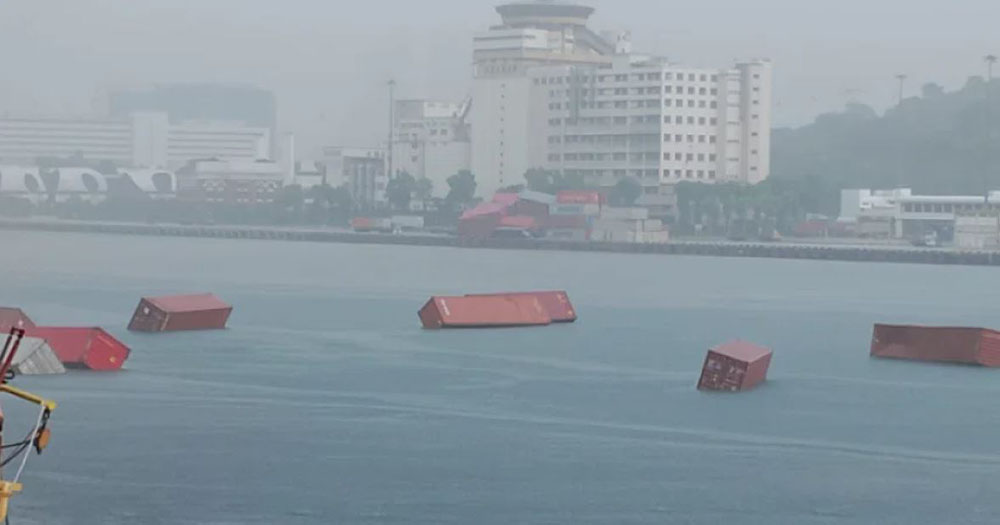
Thursday 24th, Keppel Harbour, Singapore.
Fortunately, these fifteen 40’ shipping containers were empty. Strong winds throughout the day had blown them from the terminal into the bay. Thankfully no one was injured in the incident which was quickly and efficiently cleared up by the Port of Singapore Authority.
The majority of shipping containers lost at sea fall from the carrying vessel and although the loss is only a small fraction of the more than 226 million shipping containers transported every year, it remains a significant and continuing problem; in the 14 months to January 2021 more than 2600 containers were lost at sea.
Whilst this incident will not present a significant headache for insurers and will most likely be attributed to ‘natural catastrophe’, the value of marine claims is increasing and over 12% are for damaged goods. According to a recent analysis by Allianz Global, ‘Damaged goods, including cargo handling and storage, is the top cause of marine insurance claims by frequency, and the third largest by value over the past five years…’
So when is cargo insurance required? Very simply it depends on your insurable interest;
“A person or entity has an insurable interest in an item, event or action when the damage or loss of the object would cause a financial loss or other hardships.
There are two points to consider;
Firstly, the carrier’s Liability. This will depend on the mode of transport and whether you book directly with the carrier or through a freight forwarder, but plan for the worst and expect the carrier’s liability limitation to be lower than the value of your damaged cargo.
Secondly is the contract of carriage, or Incoterms agreed with your supplier or customer, for example selling ‘ex works’ will significantly decrease your liability compared to ‘delivered door’. Adequate packing and safe stowage help to avoid cargo damage and while it is not a legal obligation to insure cargo, it is highly recommended to obtain Goods in Transit insurance before shipping cargo by road, air or sea.